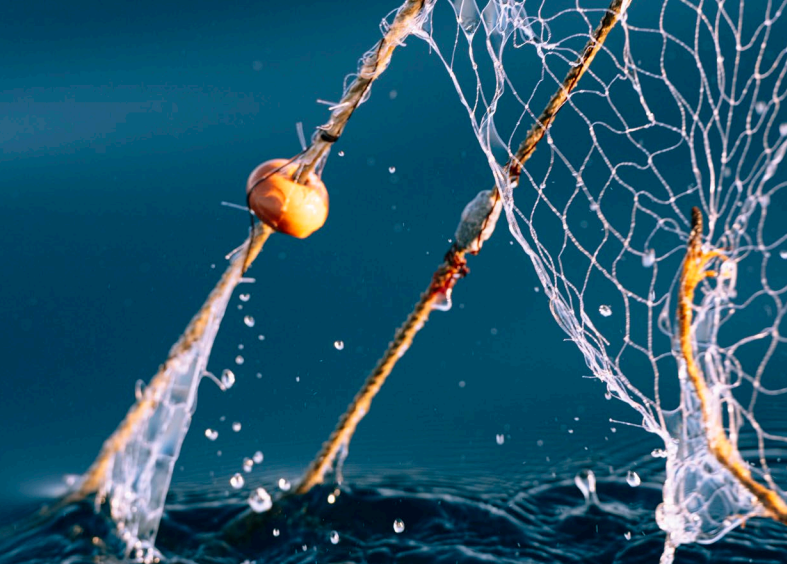In February, the European Commission issued this warning to Cameroon to push the African country to strengthen its actions against IUU fishing.
What future for Sustainable Fisheries Partnership Agreements?
In view of the global evaluation of the Sustainable Fisheries Partnership Agreements (SFPAs) that will be carried out by the Commission in 2021, the author highlights the key points which will need to be assessed from the perspective of the impacts on African coastal communities. The author also suggests essential improvements to be made for the future of SFPAs so that they better respond to the needs of these communities.
A better 2021
International Ocean Governance: more can be done to promote socially and environmentally sustainable fisheries
Improving scientific observer coverage in mixed Fisheries Agreements in West Africa
BirdLife Europe and Central Asia, CFFA and WWF release a joint paper with recommendations to harmonize the conditions for the embarkment of scientific observers on board EU vessels and ask that data collection include more specifications on the biological information required, including information on bycatch species.
World Fisheries Day: How the EU can support sustainable African artisanal fisheries
In this declaration on the occasion of World Fisheries Day, CFFA calls on the European Union to integrate the FAO Guidelines for Securing Sustainable Small-scale fisheries into all its policies that have an impact on this sector, particularly in the Blue Economy and Farm to Fork strategies and in its external action.
Sustainable Fisheries Partnership Agreement negotiations between the EU and Mauritania: staying on course
As a new round of negotiations between the EU and Mauritania is expected to start soon, this position paper recalls the demands of the Mauritanian artisanal fisheries sector, highlighting technical conditions, such as the access to octopus to be reserved for local artisanal fishers, the zoning for trawlers to be maintained, and landings of small pelagics to be kept. Governance issues are also key, such as transparency, especially regarding the activities of other foreign fleets; and the urgent need for the SFPA to contribute to regional management for shared stocks.
EU Farm to Fork Strategy: Raising the ambition on global fisheries aspects
On World Food Day (16 October) we publish this short brief, which reviews the recommendations of the EU Food Policy Coalition on the global aspects of the EU Farm to Fork (F2F) strategy, underscoring that F2F largely ignores seafood production, and highlights EU trade, cooperation and imports aspects that are essential for sustainable external fisheries.
Making Sustainable Fisheries Partnership Agreements’ evaluations more efficient
BirdLife Europe and Central Asia, CFFA and WWF publish a joint paper with recommendations to improve the process and the content of evaluations by including the assessment of impacts of the EU fleet on ecosystems, of the transparency and non-discrimination clause, the needs of women, the implementation of the social clause and the contribution to SDGs.
Why the current African Union’s blue economy strategy threatens small-scale fisheries
Towards greater coherence and budgetary efficiency in future EU sustainable fisheries partnerships
This concept note is part of CFFA's long-term reflection and consultation on the future of the European Union's Sustainable Fisheries Partnership Agreements (SFPAs). We develop some avenues for making SFPAs more effective and sustainable, through a holistic and concerted approach, a financial rebalancing and the implementation of rigorous budgetary tools combined with capacity building.
Investment and transparency in EU-Africa fisheries relations: what about joint ventures?
In this joint position, CAOPA and CFFA request that, in the framework of the future EU–Africa partnership, which focuses on sustainable investments and the promotion of good governance in fisheries, a set of principles be defined to ensure that fisheries joint ventures operate in a transparent manner, do not compete with local artisanal fisheries, and are in line with the objectives of sustainable fisheries development in the third country concerned.
How large is the Chinese Distant Water Fishing fleet?
The latest ODI report presents the scale of the Chinese flagged, owned and/or operated DWF fleet and highlights the gaps and challenges in China’s governance capacity, but the methodology and the figures need to be taken with a pinch of salt. Using specific examples, CFFA reviews the key findings and implications for the West Africa region.
EU-Liberia SFPA: what should a potential future protocol look like?
10 priorities for the future of Sustainable Fisheries Partnership Agreements
CFFA and six other European and African organisations and their networks publish a joint paper with recommendations to improve the sustainability of EU-African fishing arrangements, including transparency, compliance with European obligations, increased scientific knowledge and the rethinking of the financial support objectives.
Fisheries in Africa: Exclusive Economic Zones for which purpose?
This policy brief by Michel Morin analyses the paradox between the rights that African coastal States have over their EEZs according to UNCLOS and the low benefit they derive from them for their populations, particularly for food security and employment. The article shows that there is a structural weakness in the market of fishing rights which is explained by corruption and lack of transparency, and it concludes by the need for a change of governance in the management of African fisheries.
Financial compensation, support for development and transparency, the key issues at stake in the negotiation of the EU-Madagascar SFPA
The Government of Madagascar has made it clear that it expects to derive greater benefits from its tuna resources through higher financial compensation. If this compensation is coupled with well-directed sectoral support for local fisheries, this could help develop Madagascar's small-scale fishing sector, which provides thousands of jobs and is essential for food security.




















